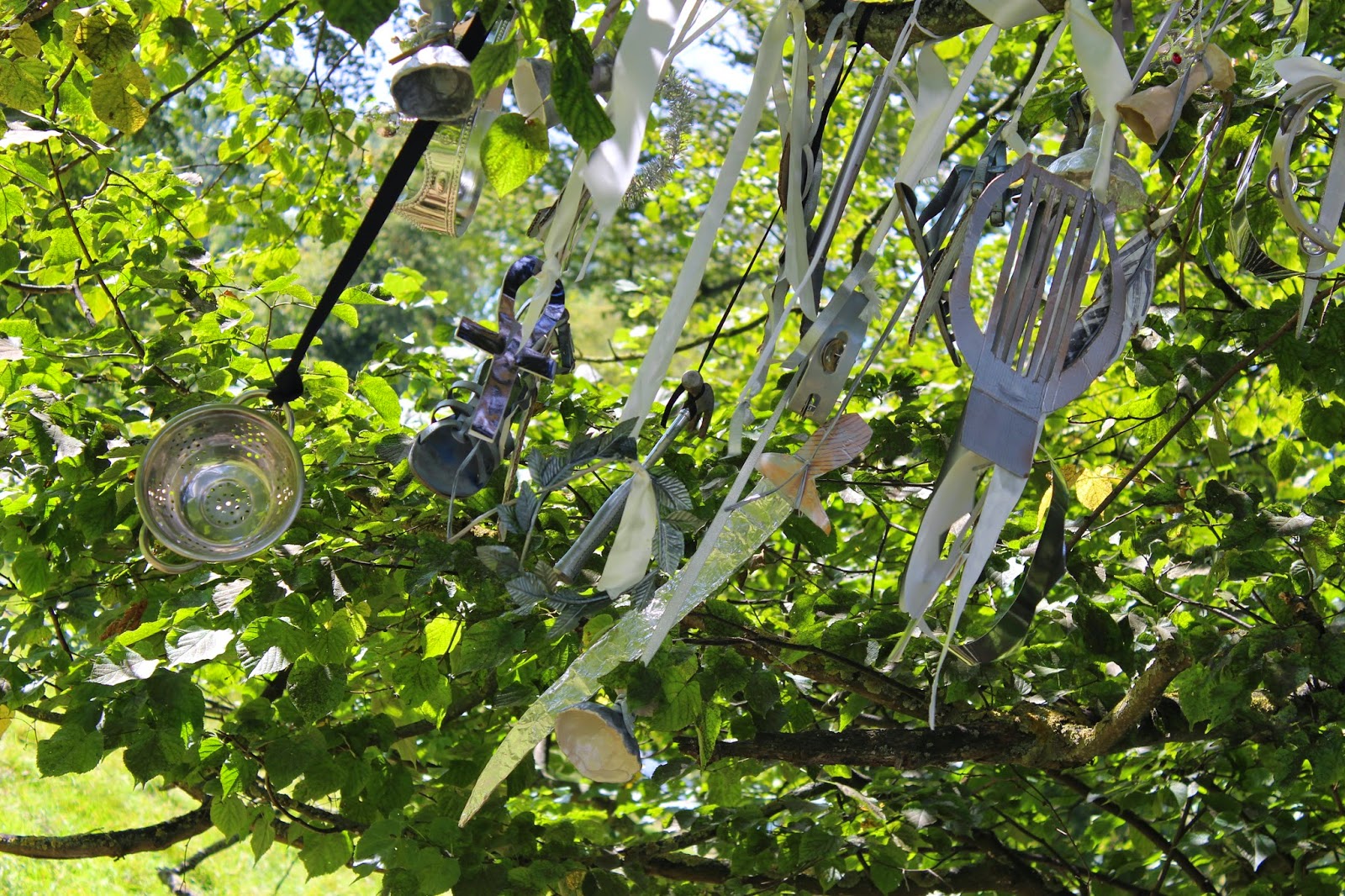Yesterday I enjoyed a day at Greenbelt seeing the Festival in its new setting at Boughton House. The new venue comes with different opportunities for layout, programming and artworks.
The Allotment Gallery is Greenbelt’s garden shed and is playing host to around 20 artists throughout the weekend, each exhibiting their work in their own two-hour slot. Six artists have also created temporary sculptural, performance and installation works for the grounds of Boughton House. I also briefly heard Beth Rowley, Martyn Joseph, Hope & Social, Levi Hummon, Dizraeli and the Small Gods, and The Travelling Band.
The highlights for me (in addition to the friends I met up with) were the seminars I attended. I caught the end of Nadia Bolz-Weber's talk, heard Linda Woodhead talk on 'The Crisis of Religion in the UK,' Brian McLaren on 'What will Religion become?' and a panel session on 'Can we reimagine marriage?' (see post here).
Linda Woodhead said that crises are tipping points requiring decisions. A crisis in a fever is the moment at which the fever breaks.
Society and Christianity have generally been on different tracks in recent years. Historic forms of Christianity are generally in decline and opposition to the growing liberalism of society is part of the reason for this decline. New forms of religion are increasing. The current social context is the second demographic transition, where the birth rate falls below the mortality rate. The first demographic transition was focused around the nuclear family but in the second, population declines, the marriage rate drops and there is a rise in divorce and cohabitation, meaning that the nuclear family unit is no longer the norm. there is a growth of affluence and education combined with the impact of greater equality for women. These are unprecedented historical changes.
These changes go hand in hand with a growth in liberalism - defined as personal freedom - which is the opposite of authoritarianism and paternalism. Each generation is becoming more liberal. However, religious groups contain a higher proportion of the 'moral majority'. The leadership of churches is generally more conservative than there members meaning that a values gap exists between leaders and members. Overall belief in God is declining but not at the extent that participation in organised religion is declining. There is an active spirituality which is not expressed within the established churches. Research in Kendal found 126 kinds of alternative spirituality; largely hidden and led by women.
There seems to be no correlation between church tradition and growth or decline. Mini or maxi does best when it comes to Church. Midi (congregations of 50 - 120) is in trouble. Occasional events such as festivals also do well. The established churches do have adavantages which could be used more effectively; these include occasional offices, chaplaincy, schools, cathedral services, heritage. Of Fresh Expressions, Messy Church seems most effective. Churches need to give people voice, choice and participation. Choice requires branding. Variety is essential because of the diversity within society. religion needs to be presented as a whole-life resource.
Alternative ways of funding religion can be identified. People will pay for alternative spiritualities. A membership model, like that of the National Trust, could be used. In countries where a Church Tax exists, people who don't attend contribute because they want the Church to provide a resource in society. Where a congregational model of funding is used, the Church becomes controlled by conservatism.
Brian MacLaren also spoke about the challenges of our current context, in particular the challenges that all religions face regarding the planet, poverty and peace. He argued that the Faiths will need to collaborate to address these challenges. We need people prepared to do in our own age what the founders of our faiths did in their own age, rather than simply repeating what they said. The key question in a pluralistic world is what benefits do religions bring to non-members. Religions say different things in response to different problems; they are all answering different questions. We need to bring the treasures from our faith and shares these with people of other faiths, as they do the same with us. We need to rub up against those who are different from us in order to experience disruption and to be converted all over again.
-----------------------------------------------------------------------------------
Hope & Social - The Big Wide.

























No comments:
Post a Comment